7 Facts You Might Not Know About South Korea
If you are not familiar with South Korea, it is one of the most affluent countries in East Asia. It is located in the southern portion of the Korea peninsula. Here's are 7 unusual facts to keep in mind when learning about Korean culture. Your typical tourist guidebooks might not cover them.
1. Blind masseuses only
 |
| Massage service in South Korea. Photo: Koreaboo |
Becoming a masseuse in South Korea used to have one very unexpected condition. In 1913, this country only allowed the visually impaired people of Korea to seek out employment as masseuses, cited from Koreaboo.
In 2006, the South Korea’s constitutional court decided to granted the right to work for both the sighted and the blind. This was followed by protests on both sides of the argument. From the sighted, the basis of this argument is that they have as much employment rights as the blind to work as masseuse. Still, the court has ruled that professional massage services should be the preserve of the blind as they generally have fewer career choices.
2. Fortunetelling..in the street corners
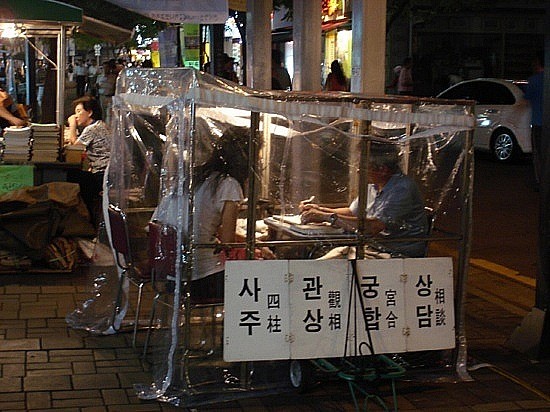 |
| Fortunetelling Tent in the street. Photo: Mr. Lee Blog |
You will be able to find fortune tellers all across the streets of Korea, especially in big cities. Fortunetelling shops/booths are typically out in the open, accessible, and affordable. The services they offer vary from general reading, face reading, palm reading, etc., and the amount you have to pay can be as little as KRW 10,000 ( about US$ 8.5).
There are fortunetelling cafe if you want to spend more time talking to the fortunetellers (usually 30 minutes to 1 hour). There are even cafes showcased on famous TV shows. However, most fortune tellers will not be able to speak English so you will need to take someone that speaks Korean with you, cited from Culture Trip.
3. Korea oral care: the 3-3-3 method
Koreans take oral care so seriously, they even have a special method called the 3-3-3. It means brushing one's teeth 3 times per day, within 3 minutes after having a meal, for at least 3 minutes each time.
 |
| Korean children to brush with a sand clock timer to practice brushing for 3 minutes. Photo: Little Green Shop |
From a young age, Koreans are taught to brush their teeth with this method. If children spend their whole day at school, they keep their brushes with them to clean their teeth after lunch. Not only children but most working adults also carry a toothbrush and toothpaste set to the offices. That's why you can easily find portable toothbrush sets in Korea.
4. Eating bugs as snack
 |
| Steamed silkworm or Beondegi, served hot in Korea. Photo: World Food Guide |
In South Korea, steamed silkworm, or Beondegi, makes juicy, nutty snack. Steamed silkworm is sold on streets and in grocery stores all around the country. In its typical boiled or steamed form, it is savory and acidic, with a bit of a fishy, nutty flavor. Its outer shell is crunchy, while the inside is soft and juicy. It’s common for vendors to add spices or salt while cooking. They also make a candied version with sugar.
It first became popular as a wartime food during the Korean War as a stable supply of protein. Beondegi had already been common in Korea for many generations, thanks to their role in creating silk, so it was easy to turn to them for a food source, as well.
5. Toilet paper gift
If you are invited to a Korean friend's housewarming party, don't forget to bring toilet paper or soap as gift. Rolls of toilet paper and laundry detergent are the most common gifts to bring since cleaning supplies bring luck and good fortune to the person who just moved into a new home.
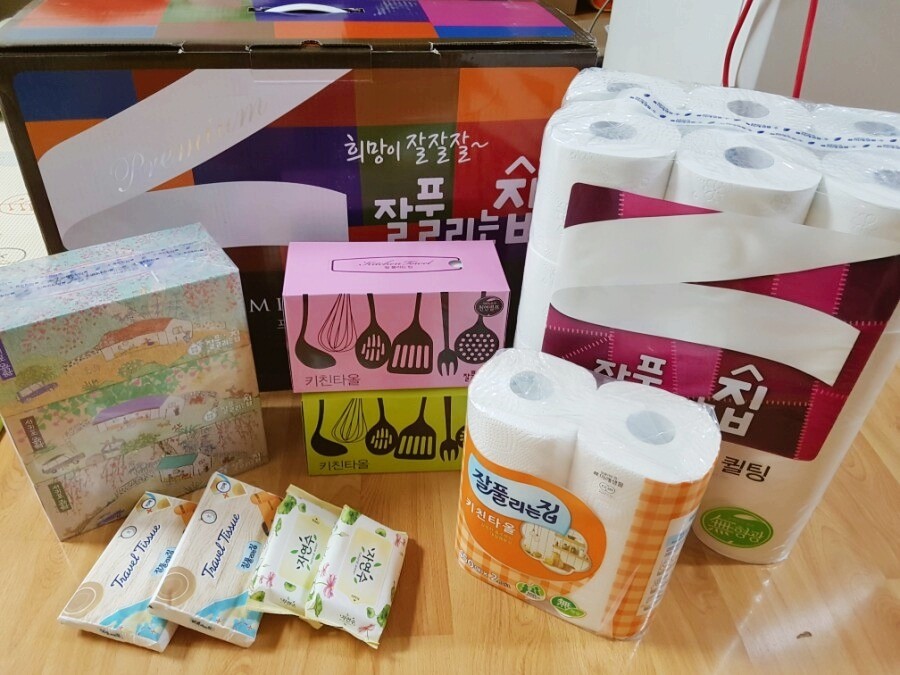 |
| Popular housewarming gifts in Korea. Photo: Daily Dose of Korea |
The meaning behind the tradition is simple: the length of the roll represents your desire for the recipient’s continued success and good health. The bubbles from the detergent means prosperity, wealth and stability.
In addition, Koreans used to hold a ritual to drive away bad luck and bad spirits from the new house. Hence, matches and candles were a popular housewarming gift in the 1960s and ‘70s but were replaced with detergent and toilet paper over time.
6. No Public Trash Can
when ask why it is nearly impossible to find places to dispose of rubbish, the country has its reasons to put fewer rubbish bins on the street.
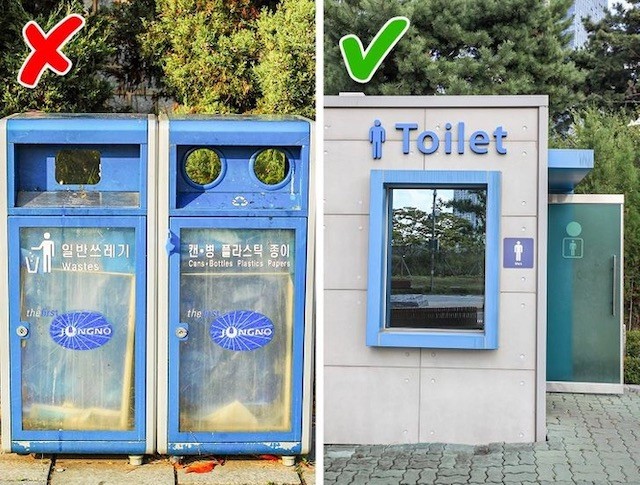 |
| When in Korea, you will probably be able to find public toilets much easier than to find public trash can. Photo: Doanhnghiepvn |
According to The Straits Times, since 1995, big cities like Seoul has applied a waste management system that requires residents to buy special bags for disposing of rubbish. The purpose is to warn people about the financial cost of producing trash, since rubbish bags are more expensive than regular bags. Public bin is also removed (until 2007) to prevent people from bypassing the system.
It is also a message for people to mind their own waste and to not litter on the street. Instead, you should keep your trash with you to dispose at home. To throw away small amount of trash, you can find small trash cans inside subway stations or convenience stores.
7. Midnight gaming ban lifted
School-age gamers once couldn't play their favorite online games between midnight and 6AM. However, the country aims to lift the ban by the end of the year when it revises its Youth Protection Act. The ban was introduced in 2011 to prevent gaming addiction.
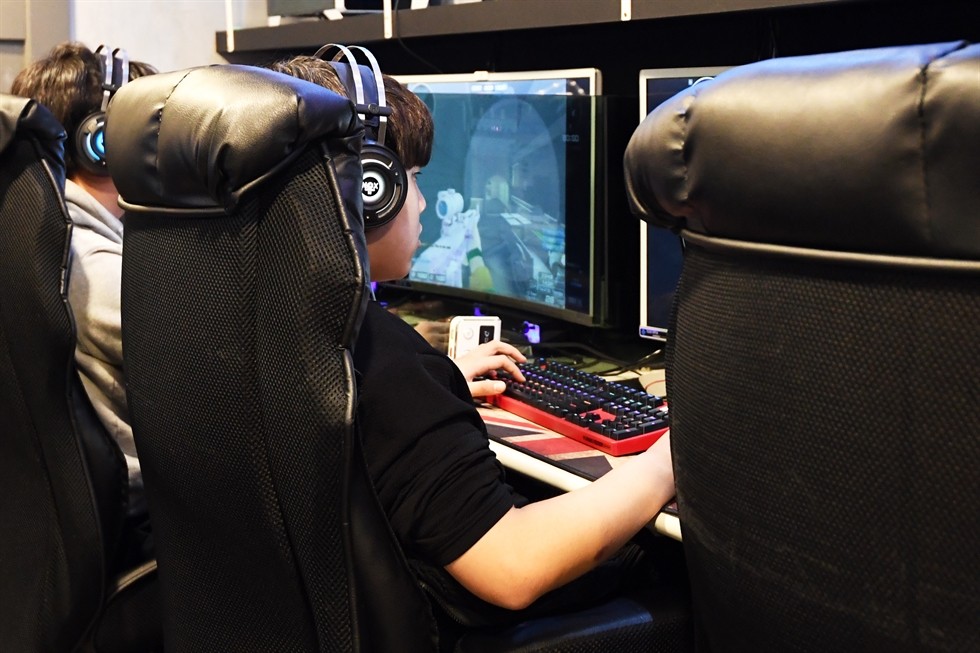 |
| Korean Gamers playing at Internet cafe. Photo: The Korea Times |
Koreans enjoys PC Bang - ultra-fast broadband and a vibrant Internet culture. Internet cafes armed with powerful high-end computers catering to school-age gamers can be found on many street corners. That's why gamers under 16 cheered as the midnight gaming ban got lifted after 10 years. The shutdown law, also known as Cinderella law, was lifted because the country wants to respect children's rights, the Korea Herald reported.
What fact surprises you the most about the land of kimchi?
 | Korean Celebrity Impresses Fans with Flawless Vietnamese The Korean singer spoke fluent Vietnames when celebrating the release of her music on Vietnam's digital streaming platforms. |
 | 11 Insteresting Facts About Italy That You Probably Do Not Know Italy is full of wonderful things, places and iconic plates for first time visitors, but how much do you actually know about this country? Let's ... |
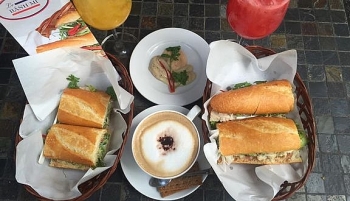 | Foreigners surprised by Vietnamese dining culture Tobias, a Canadian visitor, is surprised to find out that Vietnamese diners can bring food from one restaurant to another to eat. |
Recommended
 World
World
Pakistan NCRC report explores emerging child rights issues
 World
World
"India has right to defend herself against terror," says German Foreign Minister, endorses Op Sindoor
 World
World
‘We stand with India’: Japan, UAE back New Delhi over its global outreach against terror
 World
World
'Action Was Entirely Justifiable': Former US NSA John Bolton Backs India's Right After Pahalgam Attack
 World
World
US, China Conclude Trade Talks with Positive Outcome
 World
World
Nifty, Sensex jumped more than 2% in opening as India-Pakistan tensions ease
 World
World
Easing of US-China Tariffs: Markets React Positively, Experts Remain Cautious
 World
World


